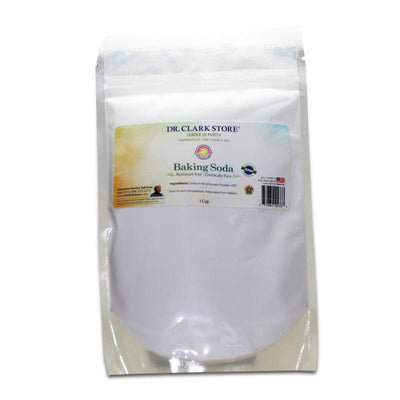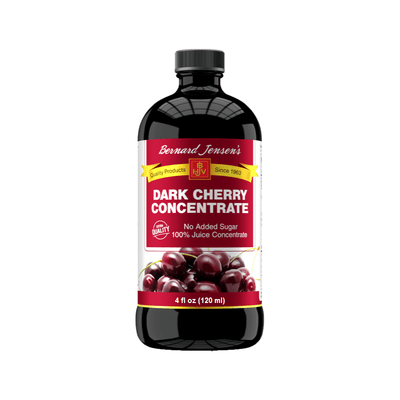Apple Pectin and Modified Citrus Pectin (MCP): A Bioactive Polysaccharide for Cancer Treatment

Pectin is a natural polysaccharide, a complex carbohydrate that has shown efficacy in the treatment of a variety of non-infectious disease, and even cancer. Pectin is composed of three classifications, galacturonic acid, RG-1, and RG-2. The majority is in galacturonan units. Apple pectin is a has been lauded for its health benefits for many years, and the more research that is done, the more evidence mounts for its potential role in treating more than digestive complaints. Studies have found that pectin directly reduces oxidative and nitrosative stress in β-cells, by inhibiting Gal-3 protein signaling, and (1). It has also been shown to decrease insulin resistance, decrease fasting glucose levels, improve glucose tolerance, and hyperlipidemia.
Studies on the use of apple pectin for high blood pressure, have similarly found that apple, pear and pumpkin pectin were able to help that cardiovascular systems of rats, lowering blod pressure and hypertension (2). Neuroprotective activity has also been discovered, with one study finding that modified citrus pectin blocks galectin-3, preventing blood-brain barrier effects after haemorrhage or brain injury.
What is Modified Citrus Pectin?
One of the more recent, promising discoveries has been modified citrus pectin (MCP), a water-soluble polysaccharide that has been modified to make it far more bioavailable than other forms of pectin. Thousands of studies have shown that even through oral ingestion, MCP is effective against metastasis of various cancers, such as prostrate carcinoma, breast carcinoma, melanoma, multiple myeloma, and other cancers.
How does it Work in Cancer Treatment?
The primary role of MCP is in inhibiting the ability of the carbohydrate-binding protein, galectin-3, to protect cancer cells from apoptosis. Galectin-3 is a key driver of metastatic cancer, as well as cardiovascular disease, fibrosus of organs, immune dysfunction, premature aging, and neurodegenerative diseases (3). Gal-3 is one of a family of proteins that have high affinity to binding to carbohydrates and the levels of it circulating the bloodstream increase during illness, injury and aging. Importantly, Gal-3 can create a biofilm that allows other precancerous factors to grow. Because cancer cell surfaces contain more Gal-3, they are more able to proliferate and evade immune defenses. MCP has been found to induce downregulation of cyclin B and cdc2, involved in the cancer cell anoikis, which is the loss of anchorage and subsequent apoptosis.
MCP for Other Diseases
Other diseases linked to high circulating Gal-3 are immune dysregulation, arthritis, and fibrosus.In a 2020 study on myocardial fibrosis, MCP was found to significantly inhibit Galectin-3, protecting against cardiac dysfunction, inhibiting myocardial fibrosis, and inflammation (4). Considering the limited therapies available for heart failure, MCP offers one of the most promising natural treatments.
Pectin for Heavy Metals
Studies have found that MCP significantly increases the excretion of heavy metals through the urine (5). Unlike other treatments, like EDTA, which can help remove heavy metals, but at the risk of recirculating them to the brain or other organs, MCP performs the same function without recirculating the heavy metals.
Pectin for Covid
A 2021 study on the use of modified pectin to treat long covid, found that this safe, non-toxic supplement offered promising benefits for inhibiting viral infection. The GAL-3 antagonist was given to patients experiencing acute respiratory syndrome (SARS-CoV-2). GAL-3 is a pro-metastatic protein, that is high in those with Covid-19. Pectin binds to and inhibits GAL-3's ability to cause tumorigenesis, angiogenesis, cell adhesion and migration. Pectin's ability to reduce GAL-3's ability to aid viral attachment has been found in other studies, and may be associated with pectins relation to other flavanoids. The authors note:
"Some natural bioactive compounds and flavonoids such as hesperidin and hesperetin which are related to citrus pectin have demonstrated the potency of the antiviral effect. Hesperidin in citrus peel contains a very interesting molecule with potential antiviral activity against SARS-CoV-2 [ 91]. Studies reported that the inhibitory activities of hesperidin against SARS-CoV-2 are through its binding affinity to the protease domain, the ACE-2 receptor-binding domain, and the spike glycoprotein receptor-binding domain " (6).
Clinical Human Trials
A trial with children experiencing cerebral palsy found that pectin-rich foods reduce vomiting, and other respiratory symptoms, and that the liquid pectin reduced coughing (6). Another clinical trial on prostrate cancer patients found that 90% experienced improvement in PSA, and 85% had no progression in their disease over the 18 month trial period. This is a remarkable finding, and indicated that MCP has a very promising use for prostrate cancer treatments.
Conclusion
Pectin, a natural polysaccharide found in various sources like apples and citrus fruits, has demonstrated remarkable efficacy in treating a range of health conditions, including cancer.Modified citrus pectin (MCP) stands out as a more bioavailable form with significant potential in combatting metastatic cancers by inhibiting galectin-3, a protein crucial for cancer cell survival and proliferation. Moreover, MCP shows promise in addressing cardiovascular issues, fibrosis, immune dysfunctions, and even heavy metal detoxification. Human trials have underscored the positive impact of pectin-rich interventions in conditions like cerebral palsy and prostate cancer, hinting at a bright future for utilizing pectin derivatives in diverse therapeutic applications.
References
1). Hu, S.; Kuwabara, R.; Beukema, M.; Ferrari, M.; de Haan, B.J.; Walvoort MT, C.; de Vos, P.; Smink, A.M. Low methyl-esterified pectin protects pancreatic β-cells against diabetes-induced oxidative and inflammatory stress via galectin-3. Carbohydr. Polym. 2020, 249, 116863.
2). Dambuza, A., Rungqu, P., Oyedeji, A. O., Miya, G., Oriola, A. O., Hosu, Y. S., & Oyedeji, O. O. (2024). Therapeutic Potential of Pectin and Its Derivatives in Chronic Diseases. Molecules, 29(4), 896.
3). Glinsky, V. V., & Raz, A. (2009). Modified citrus pectin anti-metastatic properties: one bullet, multiple targets. Carbohydrate research, 344(14), 1788-1791.
4). Xu, G. R., Zhang, C., Yang, H. X., Sun, J. H., Zhang, Y., Yao, T. T., ... & Li, A. Y. (2020). Modified citrus pectin ameliorates myocardial fibrosis and inflammation via suppressing galectin-3 and TLR4/MyD88/NF-κB signaling pathway. Biomedicine & Pharmacotherapy, 126, 110071.
5). Eliaz, I., Hotchkiss, A. T., Fishman, M. L., & Rode, D. (2006). The effect of modified citrus pectin on urinary excretion of toxic elements. Phytotherapy Research: An International Journal Devoted to Pharmacological and Toxicological Evaluation of Natural Product Derivatives, 20(10), 859-864.
6). Odun-Ayo, F., & Reddy, L. (2021). Potential roles of modified pectin targeting galectin-3 against Severe Acute Respiratory Syndrome Coronavirus-2. J, 4(4), 824-837.
7). Miyazawa, R.; Tomomasa, T.; Kaneko, H.; Arakawa, H.; Shimizu, N.; Morikawa, A. Effects of pectin liquid on gastroesophageal reflux disease in children with cerebral palsy. BMC Gastroenterol. 2008, 8, 11.




Hey S,
That is an excellent question and I will edit the article to include the following information. Apparently, some studies have been done on modified pectin at its ability to improve post-COVID-19 syndrome. Given the ability of pectin to improve the gut microbiome, mucosal immune system and commensal bacteria development, this is not a surprising finding.
From the study:
" The use of MP as a GAL-3 inhibitor could serve as an antiviral agent blocking against the SARS-CoV-2-binding spike protein"
Odun-Ayo, F., & Reddy, L. (2021). Potential roles of modified pectin targeting galectin-3 against Severe Acute Respiratory Syndrome Coronavirus-2. J, 4(4), 824-837.
Would you comment on MCP and effect on long covid?
Leave a comment